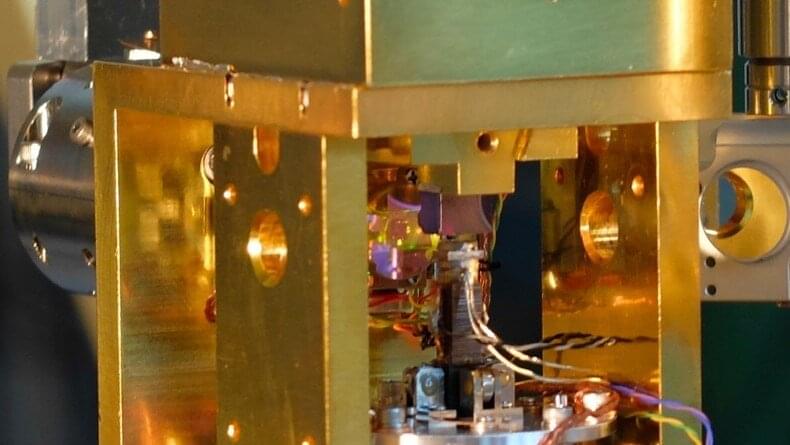Physicists have created the first Bose-Einstein condensate—the mysterious fifth state of matter—made from quasiparticles, entities that do not count as elementary particles but that can still have elementary-particle properties like charge and spin. For decades, it was unknown whether they could undergo Bose-Einstein condensation in the same way as real particles, and it now appears that they can. The finding is set to have a significant impact on the development of quantum technologies including quantum computing.
A paper describing the process of creation of the substance, achieved at temperatures a hair’s breadth from absolute zero, was published in the journal Nature Communications.
Bose-Einstein condensates are sometimes described as the fifth state of matter, alongside solids, liquids, gases and plasmas. Theoretically predicted in the early 20th century, Bose-Einstein condensates, or BECs, were only created in a lab as recently as 1995. They are also perhaps the oddest state of matter, with a great deal about them remaining unknown to science.
